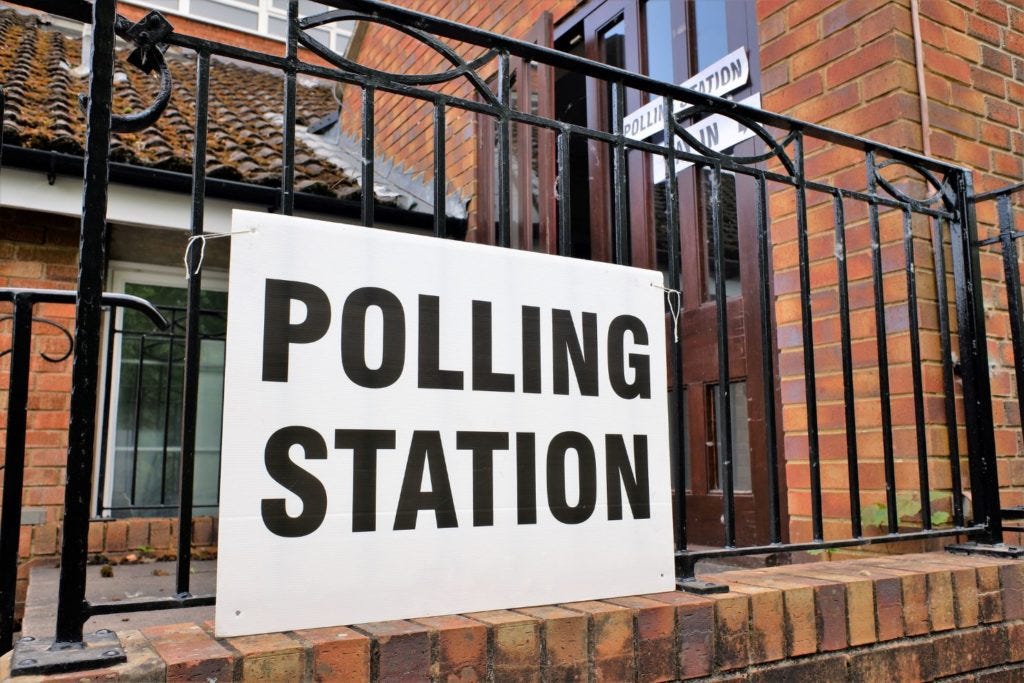Can Farage turn hype into votes?
I didn’t want to write about Reform again this side of the election. I’ve said my piece, I’ve made my predictions, and we won’t have to wait long to see who’s right. But then the study of Reform is also a study of contemporary politics, and this is a politics blog. How Reform performs tells us a lot about the state of British politics.
One story that piqued my interest was that Farage has amassed 39 billion video views on social media. Reform have made the biggest splash on social media of any political party or politician this election. The party and its leader have amassed more than 2.8 million reactions on Facebook since the start of the election, according to data analysed by Hootsuite, a social media analytics platform. Reform outperforms all the other parties combined by a country mile.
If, then, there was any connection between social media performance and how people vote, Reform would be poised to sweep the decks. Only that’s not going to happen. So what explains this?
I suspects that video views is a bogus statistic to start with. Counters can be triggered just by idly scrolling past a video, or even if it’s played for just a few seconds. As to Facebook reactions, that doesn’t necessarily mean positive reactions, nor is it proof that audiences are engaging with the content.
I learned this when I wrote blogs for Ukip for a short while, when blogs were cross-posted to Facebook. It’s clear from the comments that most hadn’t clicked through to actually read what I wrote, and I know from a long history of publishing online that click-throughs are a fraction of social media impressions.
I also suspect that video views is the new newspaper circulation statistic. Newspapers routinely misrepresented their circulation to advertisers, and content hosts are likely pulling the same trick.
As to the impact on actual voting, much of social media is preaching to the converted. There is an echo chamber effect on Twitter, which explains much of the Reform hype, and it’s no different to Ukip-mania in 2015.
What’s new this time around is that Farage appears to be dominating TikTok, and had become a cult figure among 16/17 year old males. There is much we could read into that, but they can’t vote, so it doesn’t tell us much about the outcome.
My hunch is that by Friday, we will see that the impact of social media is limited, and we will see that a ground game, using traditional methods, matters as much as it ever did. Perhaps more so. Easily two thirds of Reform candidates are paper candidates, or running only limited campaigns and will be lucky to do as well as Ukip in 2015 when Ukip had well established local branches.
Meanwhile, The Sun suggests that Clacton is not a done deal for Nigel Farage. From previous Farage outings, voters have shown us they don’t like carpet-baggers, and Farage has no local connection. If I know Farage, he’ll have concentrated his efforts on the town of Clacton, pulling his man-of-the-people shtick while neglecting more conservative ends of the constituency. It wouldn’t be a huge surprise to me if Farage has egg, instead of milkshake, on his face.
It is also entirely possible that Farage has managed to alienate some of his core supporters. His remarks on Ukraine, while not entirely wrong, don’t go over well with many in his boomer support base, and giving centre stage to Zia Yusuf, a Muslim entrepreneur and former Tory donor, is generating some concern. Farage has seemingly endorsed him as a potential successor.
I can’t yet put my finger on it, but I most certainly smell a rat. Yusuf has been able to buy himself a spot in the limelight, but there will almost certainly be strings attached. What it does mean is that Reform’s leadership will have to moderate its criticisms of Islam, or avoid the subject entirely, putting the party even closer to the centre, when many already suspect Reform of being a Tory lite party. This looks like a serious strategic error when the future battleground in politics will be over the rise of political Islam.
Adding it all up, I think Reform supporters are likely to be disappointed on Friday, both in terms of Reform’s underperformance, and the Tory party exceeding expectations. It will tell us much of what we already know. Making a big splash on social media, and captivating the television media, is no substitute for old school shoe leather politics.



The success or failure of Reform is much harder to judge compared with the fate of the other parties.
I sense that Labour will win but not with the huge majority being forecast by the "polling" companies who are not actually polling people at all. They are using "computer models" to make predictions. We already know how well that has worked in the past for things like predicting "climate change" and even previous elections. We were informed sagely that Ed Miliband was going to be PM weren't we?
The other thing in doubt is how many people will just stay at home, either out of apathy and ignorance or through such disgust that they will refuse even to participate in a political system that has all but destroyed our nation over the previous several decades.
I hope that a lot of people are going to vote Reform just to give the establishment a bloody nose, but actually, I doubt that it will be enough to translate into winning many seats. I still believe the expected Labour majority is overstated and many people will still hold their nose whilst ticking the Tory box on their ballot because they know that a Labour government is going to make a bad situation so much worse.
Not keen on forecasting or whataboutery, but your prognostications have the ring of credibility, O Sage